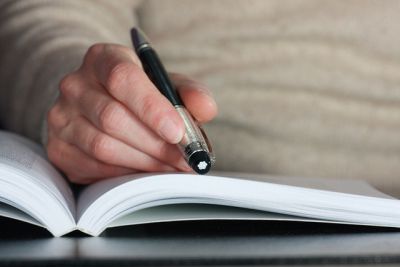Reflective practice is learning from everyday situations and issues and concerns that arise which form part of our daily routine while working in an early childhood setting. It’s about reflecting not only about what happened but why. It also guides our decision making. It forces us to analyse different aspects of experiences we offer to make judgements in what should be repeated, extended or changed. This enables us to develop and extend on children’s learning and build upon their knowledge and skills.
What Is Reflective Practice
Reflections are an ongoing occurrence that enables us educators to think honestly about our professional practice and ideas. It challenges us to take a step back to analyse our personal experiences to enhance learning and speculate upon the future and act.
Reflective practice gives a better understanding of why things happen. It assists you to recognize good practice as well as change and improve what is not working well.
The Process of Reflection
There are different ways of “reflecting” but overall it’s the same ongoing process. Observing, listening, thinking deeply about the meaning of what you have observed and heard, and using that information to inform your practice and continually respond and reflect. The reflection process includes:
Collecting Information
- Identify an issue or topic
- Gather evidence
- Talk to other professionals, families and children
- Reflect
- Question/Analyse
- What is happening? Why? How?
- Describe the experience
- When? Who benefits?
- Who is disadvantaged? What could be improved?
- How do you feel about it?
- What is the significance?
- Reflect
- Plan
- Based on what you learned, decide whether change is necessary.
- What will you do as a result of this experience?
- What does this mean?
- How will you use it to inform your future?
- Reflect
- Act/Do
Change or modify your practice.
- How might things be done differently?
- Reflect
- Review
Monitor changes you make and re-think or take new action if necessary.
- What happened? Why?
- What will you do as a result of this experience?
- What is you new interpretation of this experience?
- Did I achieve my objectives?
- What did I learn?
- How could I use these insights?
- What else do I need to know?
Throughout the reflection process there are a variety of questions that have been identified for you to answer. Not all these questions need to be answered during your reflection. However, it can be used to guide you in writing reflections. You can choose which questions to answer under each heading.
Sample of Reflection in Action
Collect Information – Think about all aspects of practice
The educators working in a long day care setting were concerns about a few of the newly enrolled toddlers and pre-schoolers whose families have recently arrived as refugees from Pakistan. Both parents and children are finding morning separation very difficult. The children are refusing to eat during meal times, not engaged with experiences on offer throughout the day and do not settle well during rest time. The strategies typically used to support children and their families during transition periods has not been working during these circumstances.
Question/Analyse – Use questions to challenge expectations and analyse current practices
During a recent staff meeting, the director asked a series of questions to assist educators reflect on their concerns for the children and families and what they could do to support them:
- What strategies are we currently using to help children and families settle into the centre? Why isn’t it working now? Improvements need to be made?
- What do we know about Pakistani culture?
- What child rearing practices should we be aware of?
- What do we know about these particular children and their families?
- What changes can we implement to support these families?
- Who could help us?
- What could help us?
While reflecting, discussing, analysing these questions educators pointed out that although children and families from other diverse cultural backgrounds within the setting, none of the educators had any experience working with refugee children and families.
Some educators thought the children will settle over the coming weeks once they get use to coming to the centre and when they start forming relationships with other children and room educators. Most educators were also not familiar with Pakistani culture, beliefs and traditions.
While discussing strategies one educator mentioned “In the past our transition and orientation procedures have worked well for all of us including the children and families, now it’s not working and I don’t think waiting until they get use to us is the answer”.
Plan
Upon further discussions, the educators decided that they needed to act now rather than wait, due to these families experiences differed from those families already at the centre and these families wellbeing was a priority. Educators prioritized a long and short term action plan.
Act/Do – Take action as a result on reflecting, analysing and questioning the issue on hand
Educator’s devised the following action plan that will be used immediately to support these families and children settle into care:
- Additional educators to be placed on the morning roster to welcome and assist children to settle in
- Facilitate an interpreter to discuss transition concerns with the families and gather their perspectives on why it has been difficult
- Offer meals that are familiar to the children – as parents for meal suggestions which can be prepared or served to the children
- Adapt familiar sleeping practices with those from home within the centre
- Extend and enhance educator’s knowledge on refugees, their experiences, impact on children and families
Reflect / Review
The strategies put in place had positive effects on both children and families. The settling in process has become a lot easier since having an extra educator available for support. The translator has been extremely helpful in developing open communication between educators and families and enabling parents to voice their concerns. Meal times and rest periods have also had positive outcomes as we adapt familiarity between the centre and home.
The educators within the centre will continue with their long term goals and progressively make changes to practices and policies (if required) as they develop their understandings from both internal and external influences.
This examples shows how educators used the process of reflection to:
- Discuss and think deeply about a concern
- Respected families ideas and contributions
- Implemented a series of actions
- Made a difference for children, their families overall wellbeing
- Improved understanding of refugee families
- Encouraged an inclusive environment within the centre
Questions for Reflection
Reflections involves analysing your own learning and practices. The following questions are starting points for reflecting on and discussing your own or other educator’s practices in a range of contexts and settings. This will help you to “recognize an issue or topic” which is the beginning process of reflecting.
Understanding Children
How do I?
- encourage children to be agents of their own learning
- collaboratively plan aspects of the curriculum with children
- engage children’s interests, needs and capabilities
- link children’s learning between setting of hoe and the centre
- acknowledge different learning styles based on the individual child
Building Partnerships
How do I?
- provide children feedback about their learning
- use conversations to create shares meaning with children
- establish positive interactions and promote shared understandings
- promote working in teams and why
- involve parents/community meaningfully and collaboratively in learning experiences
Learning Environments
How do I?
- provide extended time for investigations
- scaffold learning through a variety of ways (open ended resources)
- plan and create experiences that are inclusive and culturally responsive
- create a welcoming, warms and supportive environment for each individual child
- create flexible environments that are responsive to children’s interest and spontaneity
Learning and Development
How do I?
- encourage children to talk about their learning
- encourage collaborative learning approaches
- include children’s diverse backgrounds as a focus for curriculum decision making
- provide real life learning that reflects needs and interests
- integrate learning in play, real-life situations, investigations, routines and transitions
Exploring What Children Will Learn
How do 1?
- include individual children’s interests and needs when planning learning areas
- actively involve children to assess their own learning
- increase children’s independence in context for learning and development
- provide opportunities for creative problem solving through conversations, open ended questions and resources
How to Get Started
As you become familiar with reflective practices there are a variety of ways to begin documenting your reflections. Through documenting it enables you as well as other educators to acknowledge, understand, and recognize thoughts, perceptions and views on different issues and topics. Reflective practices can be documented in the following ways:
- Journals - Reflective journals or diaries is a simple and effective way for you to begin to record your thinking about all practices (relationships, interactions, teaching and learning, assessment, environments).
- Online – You can create a social media site/page for you and the educators you work with to encourage and support one another by sharing reflections. It’s a good way of encouraging contributions since most people enjoy using social media sites. Blogs are also another way to create a shared learning space online.
- Meetings – During staff meetings, time spent discussing practices with all educators ensures that reflections become a regular process. Whole meetings can be developed specifically around reflections while others a certain amount of time can be given within the meeting. Meetings also do not need to include all educators to reflect on practices. Meetings can be split up based upon educators working with specific age groups, room, room leaders, and assistants. It’s important that during these meetings that there is a facilitator available who can help guide the reflective process by asking questions for critical thinking and stimulate discussions. Discussions during meetings should be recorded and documented.
- Director/Educator/Mentor – Someone who ask questions, who guides you, offers a different perspective, who challenges and encourages you. Face to face, over the phone or online.
- Notice Boards – Reflective notice boards can be used in the staff room, foyer, and each room for highlighting reflective practice. Posters, quotes, questions, articles, images etc. can all be used to promote thinking and discussion. Each week/fortnight a question/issue/topic can be added onto the notice board where educators can write their comments and responses too. Further discussions on this can be supported in the staff meetings.
Whether you are reflecting for yourself or reflecting with others, reflective practices provides you with an opportunity to learn and draw open diverse knowledge, views, experiences, views and attitudes within yourself and others.
References
Lucas (2012), Critical Reflections, Melbourne Vic: Australian Collaborative Education Network
Kennedy & Stonehouse (2012), Reflective Practices, Melbourne, Vic: Department of Education and Early Childhood Development
Reflecting on Practices (2006), Queensland Studies Authority







 Here is the list of the EYLF Learning Outcomes that you can use as a guide or reference for your documentation and planning. The EYLF
Here is the list of the EYLF Learning Outcomes that you can use as a guide or reference for your documentation and planning. The EYLF The EYLF is a guide which consists of Principles, Practices and 5 main Learning Outcomes along with each of their sub outcomes, based on identity,
The EYLF is a guide which consists of Principles, Practices and 5 main Learning Outcomes along with each of their sub outcomes, based on identity, This is a guide on How to Write a Learning Story. It provides information on What Is A Learning Story, Writing A Learning Story, Sample
This is a guide on How to Write a Learning Story. It provides information on What Is A Learning Story, Writing A Learning Story, Sample One of the most important types of documentation methods that educators needs to be familiar with are “observations”. Observations are crucial for all early childhood
One of the most important types of documentation methods that educators needs to be familiar with are “observations”. Observations are crucial for all early childhood To support children achieve learning outcomes from the EYLF Framework, the following list gives educators examples of how to promote children's learning in each individual
To support children achieve learning outcomes from the EYLF Framework, the following list gives educators examples of how to promote children's learning in each individual Reflective practice is learning from everyday situations and issues and concerns that arise which form part of our daily routine while working in an early
Reflective practice is learning from everyday situations and issues and concerns that arise which form part of our daily routine while working in an early Within Australia, Programming and Planning is reflected and supported by the Early Years Learning Framework. Educators within early childhood settings, use the EYLF to guide
Within Australia, Programming and Planning is reflected and supported by the Early Years Learning Framework. Educators within early childhood settings, use the EYLF to guide This is a guide for educators on what to observe under each sub learning outcome from the EYLF Framework, when a child is engaged in
This is a guide for educators on what to observe under each sub learning outcome from the EYLF Framework, when a child is engaged in When observing children, it's important that we use a range of different observation methods from running records, learning stories to photographs and work samples. Using
When observing children, it's important that we use a range of different observation methods from running records, learning stories to photographs and work samples. Using The Early Years Learning Framework describes the curriculum as “all the interactions, experiences, activities, routines and events, planned and unplanned, that occur in an environment
The Early Years Learning Framework describes the curriculum as “all the interactions, experiences, activities, routines and events, planned and unplanned, that occur in an environment


